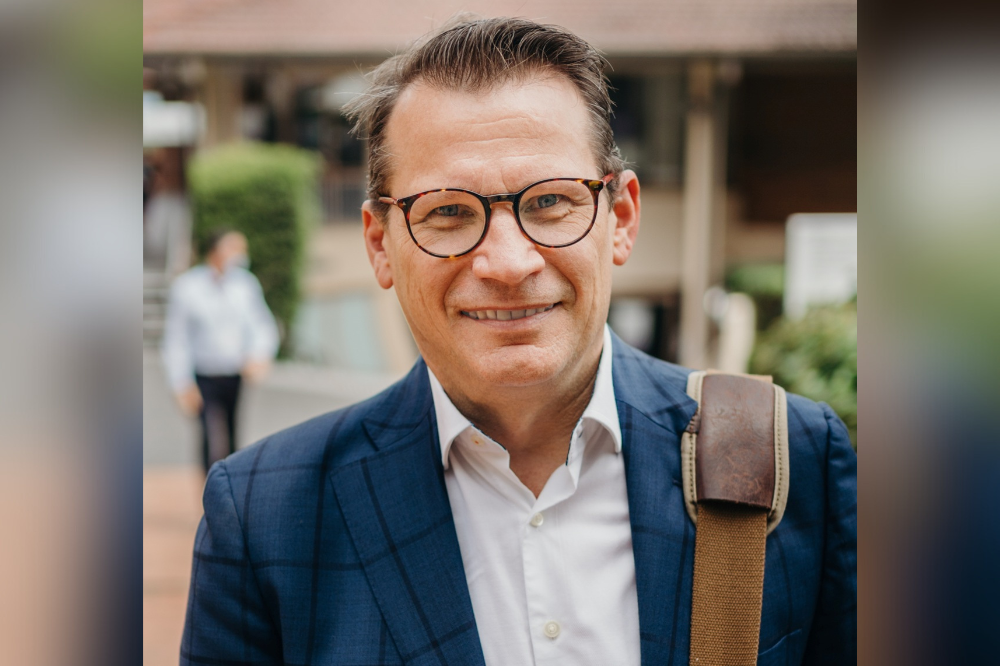
For many school leaders, the many pressures of the job can feel heavier at the end of term than they do at the beginning.
The combination of accumulative workload, staff and student fatigue, high-stakes decisions, external demands, event coordination, and emotional exhaustion, can coalesce to create a heightened sense of urgency and responsibility – and that’s the last thing leaders need before heading into a well-earned break.
Dr Paul Kidson, Senior Lecturer in Educational Leadership at the Australian Catholic University, was a school principal for 11 years and whose career includes teaching in multicultural schools in Sydney’s western suburbs.
As a former principal and an investigator for the ACU’s annual Australian Principal Occupational Health, Safety and Wellbeing Survey, Dr Kidson not only has a panoramic view of the many complex issues and pressures that face principals nationwide, but the strategies that can be employed to alleviate them.
In an interview with The Educator, Dr Kidson said there are several wellness strategies that Australian school leaders can use when they’re feeling overwhelmed.
“You must find what works best for you; not everyone will feel comfortable doing all of these, so choose those that might help,” Dr Kidson told The Educator.
“Maintain as many healthy routines as possible. Eating nutritious food [particularly fresh foods], keeping hydrated, and being active are key elements which contribute to good sleep, and that’s critical for managing the physical and emotional demands of school leadership.”
Stop and smell the roses
Dr Kidson said principals should take the opportunity to walk around the school as much as possible.
“It gets you out of the office, present amongst students and staff, and can have a very positive effect on the overall climate and tone of the school, as well as helps your own physical and mental wellbeing,” he said.
“It can be a great way to engage with staff members, too, and many will gladly take up an offer to ‘come for a walk with me’, helping build positive rapport.”
Principals should also try, where possible, to break up their routines to avoid feeling stuck in a rut, Dr Kidson says.
“Take a slightly different way home from work, just to keep it fresh. Have lunch with different staff each day. Offer to take a class, or a yard duty; raffling this off to staff can also be a good way to engender a sense of appreciation they have for your support of their work,” he said.
“The right to disconnect also applies to school leaders. Set the limit of when the work gets done, appreciating there will always be something more that you could do, but time away from work is needed to recharge for when you are at work.”
Dr Kidson says principals should do a quick audit of what’s necessary to get done before end of term so they can keep organised.
“If there are things that feel urgent, evaluate if they actually are, or if it’s an unrealistic expectation you’re setting for yourself,” he said.
A little gratitude goes a long way
Dr Kidson suggested that principals find some meaningful ways to thank staff for their work, too.
“Building their positive emotion will have a benefit more widely across the school community. They, too, have worked hard throughout the term and might be feeling the same way.”
Dr Kidson said such shows of appreciation could include a morning tea, a shared lunch, bare-foot lawn bowls after school, or anything similar that will reflect the culture of the school’s community.
“Consciously thank family and friends who have supported you throughout the term, too,” Dr Kidson said. “They do so much to help, often in ways that are unseen, and your appreciation of their contribution will be warmly received.”
End the year on a high note
Principals should plan to celebrate the end of term as a way of blowing off some steam and rewarding their team (and themselves) for the hard work they’ve done, says Dr Kidson.
“Perhaps it’s dinner with your partner, or friends, perhaps a weekend away, or packing your bags for an upcoming holiday or conference,” he said. “Do something that will mark the term is at its end. Having a positive goal can keep some of the motivation going.”
Finally, says Dr Kidson, principals should do what you can, but not feel guilty about what they can’t.
“Adopt a model of benefit, seeing what you can do positively, rather than a model of deficit or seek to justify why it’s beyond your control,” he said.
“The snowball is a great metaphor to keep in mind: they’re big and destructive on the way down, but they all get to the bottom of the hill and eventually melt. This phase of the year, too, will come to its end.”
Dr Kidson said principals should be mindful to seek whatever professional medical or psychological support is needed, as they can’t pour from an empty cup.
“School leaders are generous with their time and energy, but when you’re overstretched, sometimes the first place to start is with professional help.”


